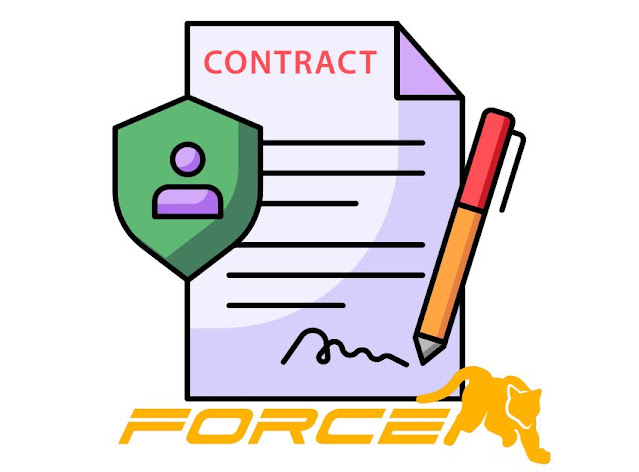The Smart Contract Revolution
Smart contracts have been a game-changer in the world of blockchain. Smart contracts are digital contracts that are written in code and are self-executing. They run on a blockchain network and allow for the creation of decentralized applications, which operate without any central authority.
The use of smart contracts has revolutionized the way we conduct transactions, enabling faster, cheaper, and more secure exchanges of value. In this article, we'll explore the history, benefits, and applications of smart contracts in blockchain technology.
History of Smart Contracts
Smart contracts were first proposed by computer scientist Nick Szabo in 1994. He envisioned self-executing contracts that could be enforced by code rather than by legal processes. The idea of smart contracts was later picked up by blockchain pioneer Vitalik Buterin, who integrated the concept into the Ethereum blockchain in 2013.
Since then, smart contracts have become an integral part of the blockchain ecosystem. They have enabled the creation of decentralized applications (dApps) that run on blockchain networks such as Ethereum, Binance Smart Chain, and Polygon. These dApps provide a wide range of services, from decentralized finance (DeFi) to gaming and social media.
Benefits of Smart Contracts
- Smart contracts offer several advantages over traditional contracts. Firstly, they eliminate the need for intermediaries, such as lawyers and notaries, which reduces transaction costs and makes the process more efficient.
- Secondly, smart contracts are transparent and tamper-proof. All parties involved in a transaction can view and verify the terms of the contract, ensuring that there are no misunderstandings or disputes.
- Thirdly, smart contracts are self-executing, which means that the terms of the contract are automatically enforced when the conditions are met. This eliminates the need for manual execution and reduces the risk of errors or fraud.
Applications of Smart Contracts
Smart contracts have numerous applications in various industries. In the finance sector, smart contracts are used to create decentralized financial products and services, such as decentralized exchanges, lending platforms, and insurance products. These services provide users with greater access to financial services and remove the need for intermediaries.
Smart contracts are also used in the supply chain industry to track the movement of goods and ensure that they meet certain standards. By using smart contracts, businesses can increase transparency and reduce the risk of fraud or counterfeiting.
In the real estate industry, smart contracts are used to automate property transactions, from listing to closing. This reduces the need for intermediaries and streamlines the process, making it faster and more efficient.
Smart contracts are also used in the gaming industry to create decentralized gaming platforms that operate on blockchain networks. These platforms provide users with greater ownership and control over their in-game assets and enable new revenue streams for developers.
Challenges and Future of Smart Contracts
Despite their numerous benefits, smart contracts still face several challenges. One of the biggest challenges is the lack of standardization and interoperability between different blockchain networks. This makes it difficult for developers to create cross-chain smart contracts that can interact with different blockchain networks.
Another challenge is the issue of scalability. As blockchain networks continue to grow in size and complexity, the processing power required to execute smart contracts will also increase. This could lead to slower transaction times and higher fees.
If you're interested in connecting with Meta Force: https://meta-force.space/r/DoqKduNVhZ
Despite these challenges, the future of smart contracts looks promising. As more developers enter the space and more use cases are identified, we can expect to see greater innovation and advancements in smart contract technology.
Conclusion about Smart Contract Revolution
In conclusion, smart contracts have revolutionized the way we conduct transactions on blockchain networks. They offer numerous benefits over traditional contracts, including efficiency, transparency, and security. Smart contracts have applications in various industries, from finance to real estate and gaming.
While smart contracts still face challenges such as standardization and scalability, the future of this technology is bright. As blockchain networks continue to grow in popularity and more developers enter the space, we can expect to see greater innovation and advancements in smart contract technology.
The development of new blockchain networks, such as Solana and Polkadot, has also led to the creation of new smart contract platforms that offer faster transaction times and lower fees. This is expected to drive further adoption of smart contracts and decentralized applications.
In conclusion, the smart contract revolution has opened up a new world of possibilities for blockchain technology. By enabling the creation of decentralized applications, smart contracts offer a more efficient, transparent, and secure way to conduct transactions. As the technology continues to evolve, we can expect to see more use cases and greater innovation in the space.















0 comments:
Post a Comment